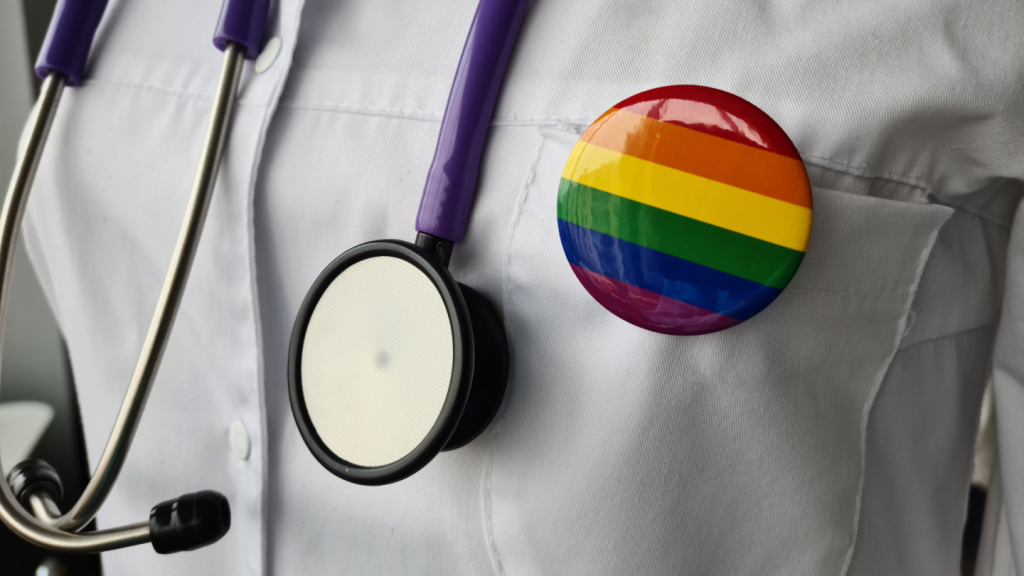
More bills that restrict the LGBTQ+ community were passed in the US in 2022. Some of these bills make gender-affirming medications illegal, while others ban those in the transgender community from using bathrooms that assign to their gender identity. Erasure bills prohibit LGBTQ+ individuals from bringing claims of discrimination in several areas, including healthcare. Some bills allow doctors to refuse an individual treatment if it goes against their beliefs. Inclusion for the community has already been a talking point in the clinical trial landscape, but will these bills make it even more difficult to promote inclusion?
Contract research organisation (CRO) Parexel published a paper in May 2023, investigating the inclusion of the community in clinical trials. One employee who worked on the paper was Liam Paschall. He is a senior consultant in management development and a transgender male living in the US, which allowed him to provide insight from a patient’s perspective. He worked on the paper alongside colleagues, including the vice president of patient engagement services, Rosamund Round. “The study population should mirror the patient population so that we are testing it in those people that are ultimately going to be taking the medications,” Round explains. “That is what we are striving for.”

Discover B2B Marketing That Performs
Combine business intelligence and editorial excellence to reach engaged professionals across 36 leading media platforms.
Dr Edmund Horowicz, a medical law and ethics lecturer for the University of Liverpool, speaks about how clinical trial researchers need to move away from the biomedical model as populations are no longer biomedical. “There needs to be a much clearer consensus from the scientific community that if we’re going to recruit human participants for drug trials, we need to move beyond the biomedical model,” Horowicz explains. “There has to be a consensus on the scientific community acknowledging that whilst the development of knowledge and new knowledge is crucial in science, it has to be done in a responsible way and when we politicise science it is only problematic.”
The current landscape
GlobalData’s Pharmaceutical Intelligence Centre found 66 ongoing, planned or completed trials in the US between 2010 and 2022, which mention the word ‘transgender’ in the inclusion criteria. Due to the biomedical approach used by pharmaceutical companies, this may not be a full list of trials accepting transgender patients in the US as there are difficulties accessing this information. GlobalData is the parent company of the Clinical Trials Arena.
Of the 66 trials, California has the most sites and has passed no bills. North Dakota and Tennessee have each passed 10 bills and neither state had any trial sites. Alabama has passed two bills with no clinical trial sites in the state. There were some exceptions such as Texas which has passed five bills and has 15 trial sites while Florida has 16 trial sites and four bills in place. Of the areas which are more pro-LGBTQ+, having passed no bills, Washington DC has 26 sites, Massachusetts has 33 sites and New York has 43 sites.

US Tariffs are shifting - will you react or anticipate?
Don’t let policy changes catch you off guard. Stay proactive with real-time data and expert analysis.
By GlobalDataThe number of trials dropped by more than half in 2022 from the year before, however, remains above the number of trials which were conducted in previous years. In 2014, there were no trials that included the word ‘transgender’ in the inclusion criteria, however, it is unclear why this is the case. According to data published by the Human Rights Committee, in 2022 the highest number of restrictive bills for the LGBTQ+ community (315) were introduced but less than 10% (29) were passed into law. Of the 315 introduced, 149 targeted the transgender and non-binary community. In the years leading up to this, there had been a continuous increase in transgender inclusivity in clinical trials until the sudden 2022 drop. The drop in 2020 could be attributed to the impact of covid-19, as the overall number of clinical trials also took a hit.
Of the trials evaluated, nearly three-quarters were in infectious diseases, many with an indication of HIV. Other indications which were specific to the community included sexual differentiation disorders, while a number of trials were unspecified. The unspecified trials included the effects of puberty blockers or testosterone therapy in cardiometabolic health and management of pain for post-gender-affirming surgeries.
Some trials were not specific to the community, including those on zika virus, malaria, diabetes, drug and alcohol addiction, female hypoactive sexual desire disorder, and covid-19. Also, there were non-community-specific trials on human papillomavirus (HPV), which is highly prevalent in the community. Some of the participated trials had restrictions, including participants not being on gender-affirming medications.
Despite the already low number of trials including those from the community, specialists believe that these bills will reduce numbers even further as more bills are passed. “Some of these bills limit or ban certain gender-affirming treatments or medications so that's going to absolutely hinder researchers’ ability to study the effectiveness, the safety, the long-term outcomes,” says Paschall. “These policies that are being passed are going to discourage participation in studies due to additional fears and that limits patient recruitment and potentially bias data.”
Fear of ramifications
Paschall says another reason for the lack of inclusion is that many in the community fear healthcare providers, even more so since the 2022 increase of passed bills that restrict the LGBTQ+ community. As a result, some people do not inform researchers that they are transgender, non-binary or intersex when enrolling in a clinical trial due to fear of ramifications. This means that researchers in some trials may not be aware that the drug is being trialled on people who could be on gender-affirming hormones, with Paschall raising concerns for both efficacy and safety.
“There are some participants who may feel uncomfortable or fear discrimination so they won't report they are trans or non-binary, or they may not even report that they're intersex. So, a lot of this leads to incomplete or biased data,” Paschall explains. “If we're not telling researchers that we're taking this particular hormone therapy, or we've had this particular treatment or this particular procedure, then certainly the safety and efficacy of the drugs that we are taking in those clinical trials could have an impact that we're not aware of.”

Safety versus inclusivity
Horowicz explains that there are circumstances, like safety concerns, in which it is understandable that people in the community cannot be involved in trials. However, he argues that when there is no scientific reason detailing the community’s exclusion, they should be allowed to participate.
“There's nothing wrong with safety concerns over certain drugs and having evidence for that and being clear in the protocols but what's crucial is that we don't exclude because we're misrepresenting the population,” says Horowicz. “We need to know how the drugs are safe for everyone and who might be a particular risk. We have to be representative and make sure that there's good rationale for any exclusion and also better discussions around inclusions in studies.”
As part of its research, Parexel held a patient advisory committee to ask the community questions about whether safety or inclusivity was more important. “Everybody said safety and inclusivity were equally important,” Round says. “They want to know the potential unknown and be able to make a decision for themselves.”
Regulatory opinion
Parexel commented in its report that in the draft guidance about diversity in clinical trials from the US Food and Drugs Administration (FDA) there was only one mention of gender identity. The FDA says that it remains committed to promoting diversity in enrollment.
A spokesperson for the FDA says: “Clinical trials, and the people who volunteer to participate in them, are critical for evaluating whether a medical product is safe and effective to prevent or treat diseases.
The FDA encourages approaches to promote the participation of all underrepresented groups including transgender and/or non-binary individuals in research.
“The agency remains committed to promoting enrollment of diverse populations in clinical trials for medical product development to ensure that trial participants reflect the population that is likely to use the product if FDA approved. The FDA’s efforts to ensure that trial participants reflect the population that will likely use the product if approved includes multiple steps, such as the ongoing work to update the FDA Diversity Plan guidance, as required by the Food and Drug Omnibus Reform Act (FDORA).”
“There is hope”
Parexel’s report discusses how clinical trials can be more inclusive. Paschall says simple steps like asking a person’s pronouns and preferred name when they arrive will help them feel accepted. Gender-neutral bathrooms and the involvement of others from the community will also go a long way to help people feel comfortable taking part in trials.

“I think if we can have more allies who are willing to stand up and do what’s right, not just what’s right now, I think we will start to see our community trust a lot more and be willing to take part in clinical trials and really expand our healthcare,” Paschall concludes.
While Horowicz says: “For the scientific community, they need to shift away from that biomedical consistent focus and acknowledge that doesn't always reflect the population and drugs are for the population. I think once we do that, slowly but surely we will get representation. There is hope because attitudes change, science evolves all the time and we can't exclude individuals.”





